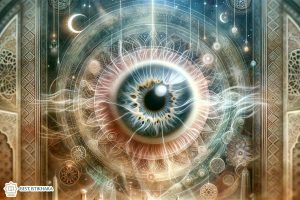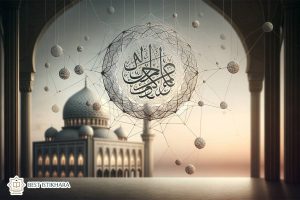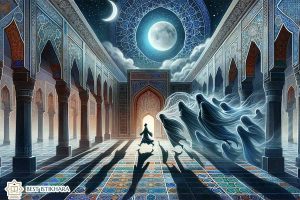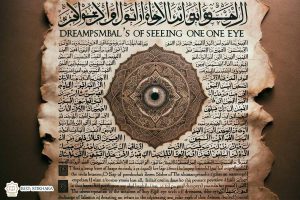Dream Interpretation in Islam
Dreams have always been a subject of curiosity and fascination across cultures and religions. In Islam, dreams hold significant importance as they are believed to be a means of communication with Allah. If you need Islamic dream interpretation service, click here. The interpretation of dreams, known as "Tabeer al-Ru'ya," plays a crucial role in understanding their significance. Prophet Muhammad (peace be upon him) himself experienced many meaningful dreams that guided the Muslim community. True dreams are believed to be a form of "Glad Tidings" or "Bushra" for believers. They can be seen as a glimpse of the unseen world and may offer guidance, warnings, or signs from Allah.
Recurring Dreams
Recurring dreams, in particular, are messages from Allah or the subconscious mind, carrying important insights or warnings for the dreamer. The interpretation of recurring dreams in Islam is approached with spiritual and psychological perspectives.
Divine Messages: Muslims believe that some dreams are a form of divine communication. If a person experiences the same dream repeatedly, it indicates the importance of the dream's message. Such dreams may contain guidance, blessings, or even warnings from Allah. Therefore, the dreamer needs to pay attention to these recurring dreams and seek guidance through prayer and reflection.
Inner Conflicts or Worries: From a psychological standpoint, recurring dreams in Islam may also arise from unresolved inner conflicts, anxieties, or worries. These dreams might reflect the dreamer's subconscious mind trying to address and resolve underlying issues. Islam encourages believers to introspect and address their concerns healthily and constructively.
Relevance to One's Life: Islam emphasizes that the interpretation of dreams is personal and context-dependent. Recurring dreams may differ in significance from one individual to another, as they are influenced by the dreamer's life experiences, emotions, and relationship with Allah. As such, dreams should be viewed in the context of the dreamer's life circumstances.
Patience and Prayers: If a recurring dream causes distress or confusion, Islam encourages patience and trust in Allah's wisdom. Engaging in regular prayers (Salah) and seeking supplication (Dua) for guidance and clarity in understanding the dream's message is believed to be beneficial.
Learning from Dreams: Muslims are encouraged to reflect upon their dreams and consider them a means of self-awareness and spiritual growth. Recurring dreams may remind us of certain virtues, areas needing improvement, or opportunities for repentance.
Nightmares
In Islam, nightmares are believed to have interpretations and are considered as significant as any other dream. Nightmares are seen as a way of communication from Allah or the subconscious, carrying important messages or warnings for the dreamer.
Divine Communication and Warning: Muslims believe that nightmares may be a form of divine communication, allowing Allah to convey important messages to the dreamer. Nightmares are often interpreted as warnings or reminders of potential dangers, spiritual weaknesses, or negative influences in one's life.
Repentance and Seeking Forgiveness: Some nightmares may be a reminder of the dreamer's spiritual weaknesses or neglect of religious duties. In such cases, the interpretation may encourage the dreamer to seek forgiveness from Allah and engage in acts of repentance and devotion.
Lucid ِDreams
Lucid dreams, also known as "mubashirat," are vivid and distinct dreams that leave a lasting impression on the dreamer. These dreams are considered special because they are believed to be more reliable and closer to reality compared to other dreams. It is said that clear dreams often contain messages from Allah, and angels, or even foretell future events. However, not every clear dream is prophetic, as some may simply be a reflection of the dreamer's thoughts, emotions, or daily experiences.
The interpretation of dreams in Islam is primarily derived from the teachings of the Prophet Muhammad (peace be upon him). He emphasized the importance of dreams and stated that dreams are of three types:
True Dreams (Ru'ya Salihah): These are dreams that contain divine messages or true visions. They are considered to be a form of inspiration or guidance from Allah. The Prophet himself experienced numerous true dreams throughout his life.
Dreams from Satan (Hulm min ash-Shaytan): These are dreams that come from Satan and are often unsettling or disturbing. The purpose of such dreams is to create fear, anxiety, or confusion in the dreamer. Seeking refuge in Allah before sleeping can help protect against such dreams.
Dreams from One's Own Thoughts (Afwaj al-Fu'ad): These dreams are a result of one's thoughts, desires, and emotions and are considered to be a reflection of the dreamer's subconscious mind.
Interpreting clear dreams requires knowledge of Islamic symbols, contexts, and teachings. It is important to seek guidance from knowledgeable and pious individuals, such as scholars or those well-versed in Islamic teachings. Dream interpretation should also take into account the cultural and personal background of the dreamer, as the same symbols may have different meanings for different people.
Prophet Muhammad (peace be upon him) is reported to have said, "A good dream (that comes true) of a righteous man is one of forty-six parts of prophethood." This indicates the significance of true dreams and their connection to spirituality.
Dreaming of the Deceased
In Islam, dreams are considered a significant means of communication, not only with the living but also with the deceased. Dreams about the deceased are known as "Ruhani" or "Visitation dreams" and are believed to be a way for departed souls to communicate with their loved ones in the world of the living. These dreams can be deeply emotional and spiritually significant for the dreamer.
According to Islamic beliefs, the soul of the deceased continues to exist in a different realm after death. While they cannot communicate with the living in their physical form, they may be allowed to visit their loved ones through dreams. Such dreams are seen as a blessing and a form of solace for those grieving the loss of their loved ones.
Interpreting dreams of the deceased requires careful consideration, as they can carry various meanings. Here are some possible interpretations:
Comfort and Reassurance: One of the primary reasons for deceased loved ones appearing in dreams is to provide comfort and reassurance to the dreamer. They may appear calm, happy, or at peace, conveying the message that they are in a better place and no longer suffering.
Seeking Forgiveness: The deceased may appear in dreams seeking forgiveness for any wrongdoings or unsettled matters from their life on earth. Such dreams could be an opportunity for the dreamer to pray for the forgiveness and mercy of the departed soul.
Sending Messages: Sometimes, the deceased may have an important message or advice to convey to the living. These messages could be about family matters, personal issues, or spiritual guidance.
Seeking Prayers: The departed soul may appear in dreams to request prayers and supplications from the living. In Islam, it is believed that praying for the forgiveness and well-being of deceased individuals can benefit them in the afterlife.
Signal of Divine Mercy: Seeing the deceased in a positive and peaceful state in dreams can also be seen as a sign of Allah's mercy and blessings upon the departed soul.
Dreaming about Special Events
Dreaming about special events, such as getting married or seeing a dead person, can hold specific interpretations in the Islamic tradition. Here are the interpretations of these two common dream scenarios:
Getting Married in a Dream
Dreams of marriage are relatively common, and in Islam, they are often seen as positive symbols. Such dreams can have multiple interpretations depending on the context and emotions experienced during the dream. Some possible interpretations include:
Good News: Dreaming of getting married can symbolize upcoming joy and happiness in the dreamer's life. It may indicate the arrival of a positive change, new opportunities, or a new phase of life.
Spiritual Growth: Marriage is a sacred bond, and dreaming of it can be an indication of the dreamer's spiritual growth or a stronger connection with their faith.
Unity and Harmony: Marriage represents the union of two individuals. Dreaming of marriage may symbolize the dreamer's desire for unity, harmony, or the need for balance in their life.
Integration of Aspects: In some cases, dreaming of getting married may represent the integration of different aspects of the dreamer's personality or life, leading to a sense of wholeness.
It is crucial to consider the emotions and details in the dream for a more accurate interpretation. Generally, dreams of marriage are viewed as positive signs, but the exact meaning may vary depending on the specific circumstances.
Various Quotes
Sigmund Freud and Carl Gustav Jung were prominent psychologists who developed influential theories on dream interpretation. Their views on dreams differ significantly from the perspective of Islamic prophets.
Freud's View on Dream Interpretation
Sigmund Freud, the founder of psychoanalysis, believed that dreams are a window into the unconscious mind and serve as a way to fulfill repressed desires and wishes. According to Freud's theory, dreams contain hidden meanings and symbols representing unresolved conflicts or unfulfilled desires from a person's waking life. He proposed that dreams could be interpreted by analyzing symbols and understanding the dreamer's personal experiences and emotions.
Freud's approach to dream interpretation is purely psychological and does not encompass spiritual or divine aspects. In Islam, dreams are believed to have spiritual significance, often considered a means of communication with the divine or the unseen world. The focus on repressed desires and unconscious conflicts in Freud's interpretation contrasts with the spiritual nature of dream analysis in Islamic tradition.
Jung's View on Dream Interpretation
Carl Jung, a Swiss psychiatrist and a contemporary of Freud, developed his theory of dream interpretation. Jung believed that dreams are not just products of personal experiences but also contain archetypal symbols shared among all human beings. He emphasized the collective unconscious, a deeper layer of the mind shared by all individuals, which is the source of these archetypes.
Jung's approach to dream interpretation delves into dreams' symbolic and universal aspects. He saw dreams as a means of personal growth and self-discovery, allowing individuals to access and integrate aspects of themselves by interpreting archetypal symbols.
While Jung's focus on symbolism and the collective unconscious touches upon broader spiritual aspects, his views still differ significantly from the Islamic perspective. Islamic dream interpretation draws on religious teachings, symbolism from the Quran and Hadith, and the spiritual significance of dreams as a form of communication with the divine.
Islamic Prophets' View on Dream Interpretation
In Islam, dreams are believed to be a form of divine communication. Prophets in Islamic tradition, such as Prophet Muhammad (peace be upon him), are reported to have received revelations and guidance through dreams. For instance, the Prophet Muhammad's (pbuh) Night Journey (Isra and Mi'raj) was initiated by a significant dream.
Islamic dream interpretation often involves seeking knowledge from religious scholars or individuals who possess insight into the religious texts and context. Dreams are seen as a form of "unseen knowledge" (ilm al-ghayb), and their interpretation requires wisdom and guidance from knowledgeable sources.
Conclusion
Dream interpretation in Islam reveals a deep insight into the spiritual realm. From the time of Prophet Muhammad (PBUH) to the modern era, dreams still have a special place in the hearts of Muslims around the world. By understanding the art of dream interpretation, believers can gain a deeper connection with their inner self and seek spiritual growth and guidance.




































































































